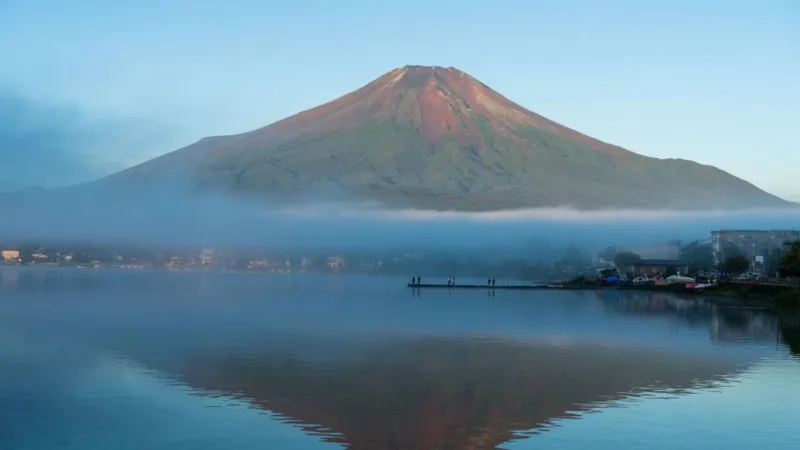Mount Fuji, Japan’s most famous mountain, has stayed snow-free longer than ever before. Typically, snow begins covering the peak in early October, but warmer-than-usual temperatures have prevented this from happening so far. The delay reflects the ongoing changes in climate, with experts pointing out that the unusually hot summer extended into autumn, stopping cold air from forming.
The lack of snow not only affects the mountain’s familiar appearance but also raises concerns about shifting seasonal patterns. Mount Fuji is usually covered in snow for most of the year, except during the summer hiking season. Its early snowcap signals the arrival of colder months, but this year’s delay suggests that weather patterns are becoming more unpredictable.
Japan experienced record heat this summer, which is believed to have contributed to the delayed snowfall. The absence of snow has worried many environmentalists, as it could indicate broader climate disruptions. If these warming trends continue, such changes may become more frequent, affecting not just natural landscapes but also tourism and cultural traditions.
Fewer people visited Mount Fuji this summer compared to previous years. While some stayed away due to new rules like visitor fees and daily limits on climbers, unpredictable weather may have also played a role. For many, the thrill of climbing Fuji lies in the beauty of its snow-covered summit, which has been celebrated in art and culture for centuries.
Mount Fuji is more than just a popular tourist destination; it holds deep cultural significance. It appears in numerous artworks and has long been considered a symbol of beauty and stability. However, the ongoing environmental changes are now making even this timeless mountain feel uncertain.
The delayed snowfall on Mount Fuji is a reminder of how global warming is altering familiar landscapes. Experts warn that such events could become more common if steps aren’t taken to address climate change. While the mountain will likely receive snow in the coming weeks, the delay shows how weather patterns are changing in ways that could have lasting effects on the environment and society.
Mount Fuji’s bare slopes serve as a clear message: nature is changing, and people must act quickly to slow down the effects of climate change. Without action, beloved places like Fuji may continue to experience disruptions, affecting not just the environment but also the traditions and experiences that make them special.
Sources: The Japan Times, AFP, Kofu Local Meteorological Office.




